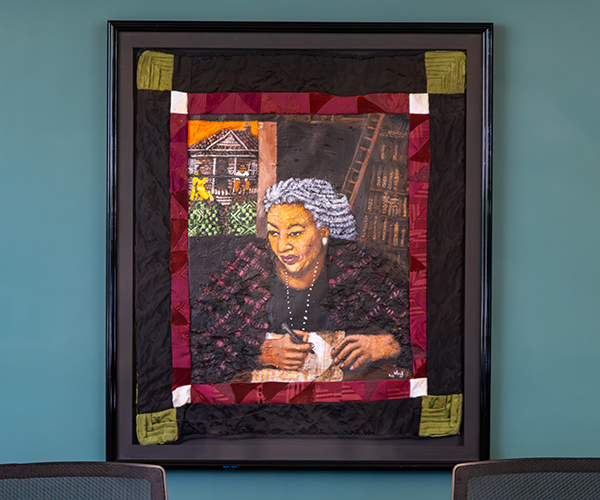Laura Maylene Walter is used to the stress of writing deadlines: The one-time fiction editor of Mid-American Review, an international literary journal published out of Bowling Green State University, is currently revising a novel and has recently been published in the Cincinnati Review and Kenyon Review.
But being part of the team that launched the new online literary journal Gordon Square Review in November was a welcomed challenge.
The journal, which spotlights poetry, fiction and nonfiction from local talent, also has global reach. For the inaugural issue, the editor-in-chief and her cohorts — prose editor Matt Weinkam and poetry editor Ali McClain — received more than 800 submissions from writers located from Malaysia to India.
“We didn’t want it to just be a local publication,” she says. “We thought for the long-term health of Gordon Square Review, it would be best to open it up and have a broader range of voices from all over.”
Published twice a year by Literary Cleveland, a nonprofit dedicated to supporting the local writing community, Gordon Square Review selects three writers to participate in an editorial mentorship per issue. Those writers receive intensive edits on a piece before it’s published. “People have been excited to see a new journal that is trying to do different things,” she says.
With Gordon Square Review accepting submissions through March 15 for its spring 2018 issue, Walter shares insights into the genesis of the journal and what makes a good story.
Q: Why does Cleveland need a literary magazine like Gordon Square Review?
A: Cleveland is a smaller city, but we have a lot of literary talent here. There are many amazing literary events that people can attend, and we have writers who might not be publishing in the big name journals, but they’re doing the work — and they are doing really good work. It’s an accessible place for people to submit to. Even if they don’t get their work accepted right away, it’s a way to offer one more thing to the community here.
Q: Why was it important to have an editorial mentorship?
A: It goes back to Literary Cleveland’s mission, which is to help writers. The organization hosts so many workshops and events and panel discussions. It is really trying to open up the literary world to our residents here and to help people and nurture their talent. The literary world is notoriously cutthroat— it’s very competitive. This gives us a little bit of time to say, “OK, let’s talk with this writer, let’s work with this writer and see how we can help them.”
Q: As an editor, what makes something stand out to you?
A: That’s part of the magical question that is really hard to answer. It’s this really intangible quality. I’m never going in looking for a certain type of story or a certain plot. I want to see what comes alive on the page. And that’s why it’s always so difficult to try to give writers advice about submitting to journals and what they should do, because it is very subjective. But it’s what really makes us excited. It’s what makes me send Matt an email saying, “You have to go read this piece right now.” It’s something that has energy behind it — and having energy behind the prose is a rare quality. It’s special, and it is easy to recognize. The best advice I can give is it just comes more with practice. The more you write, the more true you’ll be to your voice — and the more you’ll be able to spark something.




